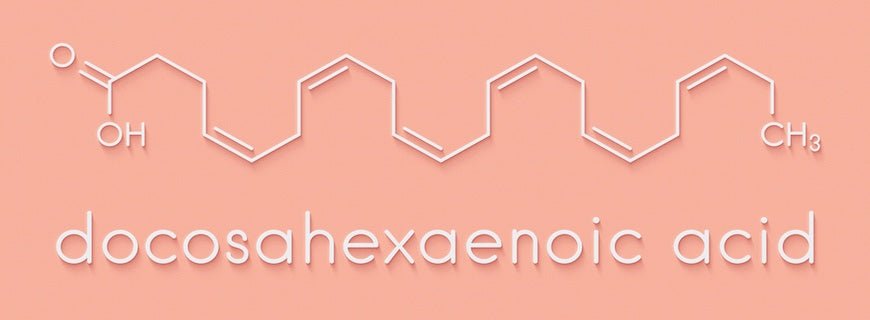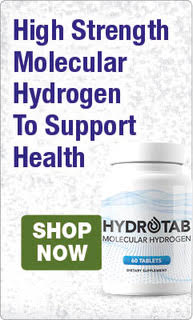The benefits of omega-3 fatty acids are often and roundly discussed, but it’s quite rare to see the differences between the two key forms parsed out. It’s rarer, still, to read exclusively about the benefits of one rather than a potted summary of both.
Last year, we wrote an article about the stand-alone benefits of EPA, investigating the Essential Fatty Acid’s effect on depression, anxiety, ADHD, pregnancy, weight loss and heart health. It occurred to us that a similar article looking only at DHA would be of interest.
Why? Because as with EPA, there could well be circumstances under which prioritising DHA becomes particularly important – especially in relation to mental health but also for the nervous system and eyes.
Read on to find out more about the unique benefits of DHA supplementation.
How DHA Works
Docosahexaenoic acid is a long-chain fatty acid typically found in oily fish such as sardines, herring, mackerel, trout and salmon. Indeed, most fish harbour higher quantities of DHA than EPA, and algae often provides DHA – but not EPA.
Here’s something you might not have known: DHA is a primary structural component of the human brain, which is nearly 60% fat. It’s also a key structural component of our skin and retina, as well as our cerebral cortex.
Maternal DHA intake makes an enormous contribution, therefore, to brain and visual development among foetuses and breastfed infants, and DHA intake also contributes to healthy visual development in infants. Infants initially obtain DHA and arachidonic acid (ARA) in utero during pregnancy, and thereafter from their diet via mother’s milk.
As we noted in our EPA deep dive, DHA and EPA frequently work in tandem, with both contributing to the maintenance of healthy blood pressure and blood triglyceride levels (ergo, healthy heart function). However, as we have begun to demonstrate, the benefits are more wide-reaching.
In spite of its importance, mammals are largely unable to synthesise DHA, meaning dietary consumption is the best way to ensure an adequate supply for neuronal function.
How DHA Helps the Brain
It is not possible to discuss DHA without discussing its effect on the brain. As stated, the fat is especially concentrated in the brain – indeed, many refer to the nutrient as ‘brain food’. A number of studies correlate fish intake with healthier brains, qualified variously in terms of lowered Alzheimer’s risk, cognitive ability, memory and silent brain damage. It has been speculated that much of the benefit stems from DHA.
Take the 2012 report by the Easton Center for Alzheimer’s Disease Research, for example, which looked at the amount of DHA in red blood cells among 1,500 elderly individuals: results showed that subjects with the lowest DHA levels had significantly lower total brain than their DHA-rich counterparts. What’s more, low-DHA individuals performed worse on tests assessing visual memory, executive function and abstract thinking.
One year later, a trial whose findings were published in the American Journal of Clinical Nutrition, highlighted the benefits of DHA supplementation for both memory and reaction time in healthy young adults who were previously deficient in the EFA. The response was somewhat modulated by sex, in that women showed the greatest improvements in episodic memory and men exhibited the greatest improvements in reaction times of working memory.
Studies also show that a diet rich in DHA is reflected in learning ability, while deficiencies correspondent with deficits in learning. We have summarised some of the evidence in our blog “Should Children Take Fish Oil?”, paying particular attention to studies which assessed IQ, behaviour and developmental disorders such as autism and ADHA.
These studies add weight to mid-00s research by the University of Bristol, showing that children of mothers who ate more than 12oz. of seafood were more developmentally advanced (motor skills, communication, social skills) as toddlers, exhibited more positive social behaviours and were less likely to have low verbal IQ scores at the age of eight.
Such findings are completely unsurprising when you consider that DHA accumulates in areas of the brain involved in memory and attention, including the cerebral cortex and hippocampus. Not only does DHA help to spur the growth of new brain cells, but signs are that it protects existing brain cells from inflammation, a noted driver in both Parkinson’s and Alzheimer’s.
Dosages vary across studies, but it is often recommended that adults aim for 800mg-1g per day of DHA if you don’t eat a lot of fatty fish. For others, anywhere between 200 and 500mg may prove effective.
Are DHA Supplements Necessary During Pregnancy?
Undoubtedly pregnant and breastfeeding mothers have a greater dietary need for DHA, and in a sense the benefits are indivisible from those given above: DHA intake is required to help the foetus and breastfed infant develop. The valuable fatty acid is passed from mother to baby via the placenta and large quantities of DHA enter the baby’s brain, especially in the final trimester when the organ experiences a growth spurt.
Nurturing healthy brains and eyes is not the only benefit. A number of studies have found that DHA supplementation during pregnancy results in a modest increase in pregnancy length, or less preterm births. Furthermore, DHA during pregnancy appears to have an anti-allergic effect on newborns genetically disposed to an inherited allergy.
In a persuasive 2018 study published in the American Journal of Clinical Nutrition, a hitherto unknown benefit was also uncovered, in that mothers who took 600mg of DHA during pregnancy birthed children with a greater fat-free body mass at age five than a placebo group. The Kansas University DHA Outcomes Study built upon earlier observational studies, which highlighted associations between maternal DHA levels and greater fat-free mass and lower body fat percentages.
It would be inaccurate to say that maternal DHA consumption is purely necessary for foetal or infant development. In fact, DHA becomes even more important for the mother since her own intake is essentially redirected to the baby. And with DHA deficiency regularly linked to depression – and one study showing a link between low serum DHA and postnatal depression in particular – it is vital for the mother to ensure both a sufficient DHA intake to nurture offspring development and avoid depletion herself.
The general recommendation is that pregnant women should consume two portions of fish per week, with one being oily. The reason given is that fish can contain low levels of pollutants that accrue in the body. That said, the risk of harm from pollutants appears to be less than the risk of DHA deficiency brought about by abstaining from seafood. (The main thing to avoid is fish species known to have a higher than average mercury content, namely swordfish and shark.)
As for the specific DHA recommendation, the EU Register on Nutrition on Health Claims asserts that “the beneficial effect is obtained with a daily intake of 200 mg of DHA in addition to the recommended daily intake for omega-3 fatty acids for adults, i.e.: 250 mg DHA and eicosapentaenoic acid (EPA).” In other words, pregnant mothers should strive to consume 450mg of DHA per day, in addition to 250mg of EPA per day.
Naturally, it is a good idea to speak to your doctor or midwife about which supplements you might use during pregnancy. But to be sure, there is nothing fishy about the official guidance: DHA is uniquely important for both pregnant and lactating women. Incidentally, women are also advised to take 400 mcg of folic acid each day, from before pregnancy up to 12 weeks. You might also explore the benefits of probiotics during pregnancy.
DHA Supplement Options
Whether you’re looking to boost your mood, mitigate against age-related cognitive decline, protect the heart or assure the healthy development of your newborn, taking a supplement containing a clinical dose of DHA is a good idea. Our UnoCardio 1000 fish oil is a good option.
Ranked #1 for quality by independent aggregator Labdoor, UnoCardio 1000 has held the top spot despite fierce competition since 2015. It also holds a five-star rating from the International Fish Oil Standards Program. In addition to 460 mg DHA, each softgel contains 675 mg EPA and 1,000 i.u. (25 mcg) vitamin D.
Since the current official UK advice recommends 400 i.u. (10 mcg) of vitamin D throughout pregnancy and breastfeeding, UnoCardio 1000 can be considered an excellent all-round supplement for pregnancy in particular.
If you’d rather avoid the vitamin D, UnoCardio X2 is a good alternative; it boasts 445 mg DHA and 670 mg EPA. As with UnoCardio 1000, it has been third-party certified for both purity (IFOSP) and quality (Labdoor).
Conclusion
We expect to learn more about DHA in the years to come, particularly as researchers conduct yet more studies. We hope this article has been useful to you nonetheless, and we intend to update it as and when new research comes to light.
The important thing to bear in mind is that DHA is only useful if you consistently maintain your levels. You should also remember that supplements are never a replacement for lifestyle: things like diet, exercise, sleep and so forth.
What are your experiences of this critical nutrient? We’d love to hear from you. Use our Contact form to get in touch.
Water for Health Ltd began trading in 2007 with the goal of positively affecting the lives of many. We still retain that mission because we believe that proper hydration and nutrition can make a massive difference to people’s health and quality of life. Click here to find out more.




























Leave a comment